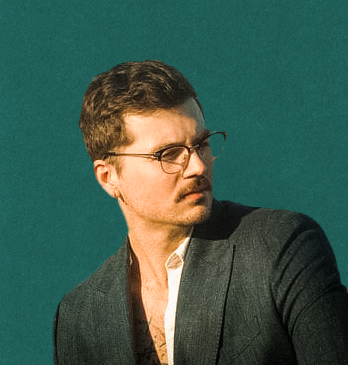We caught up with the brilliant and insightful Steven Allison a few weeks ago and have shared our conversation below.
Steven , thanks for joining us, excited to have you contributing your stories and insights. Can you take us back in time to the first dollar you earned as a creative – how did it happen? What’s the story?
I sold my first artwork when I was 19, a project I made for a 2d design class in art school. I remember it was made of markers, patterned paper, and faux wood paper. I was inspired by a Father John Misty Album cover from 2012, so it was very cartoonish and graphic but had many collage elements that I think gave an exciting look. It got into a student work competition in 2nd place and was purchased there. I remember thinking, “Wait, I can do this; I should do this.” until now, I have worked at a few minimum wage jobs, call centers, cleaning houses, and front desk work. I hated all of them; I was a terrible employee because I knew at every single job I was at, I was being exploited, and the work didn’t matter. When I made $300 for a work I made, nobody asked me to do it – I just did it, and somebody liked it enough to give me money for it; it was the first time I felt proud of how I made money.
This was the start of my art as a career journey, which I am still on a decade later – after working in a gallery and bumping elbows with very successful artists, I discovered there is a lot more to making it a full-time job than just skills and happy thoughts.
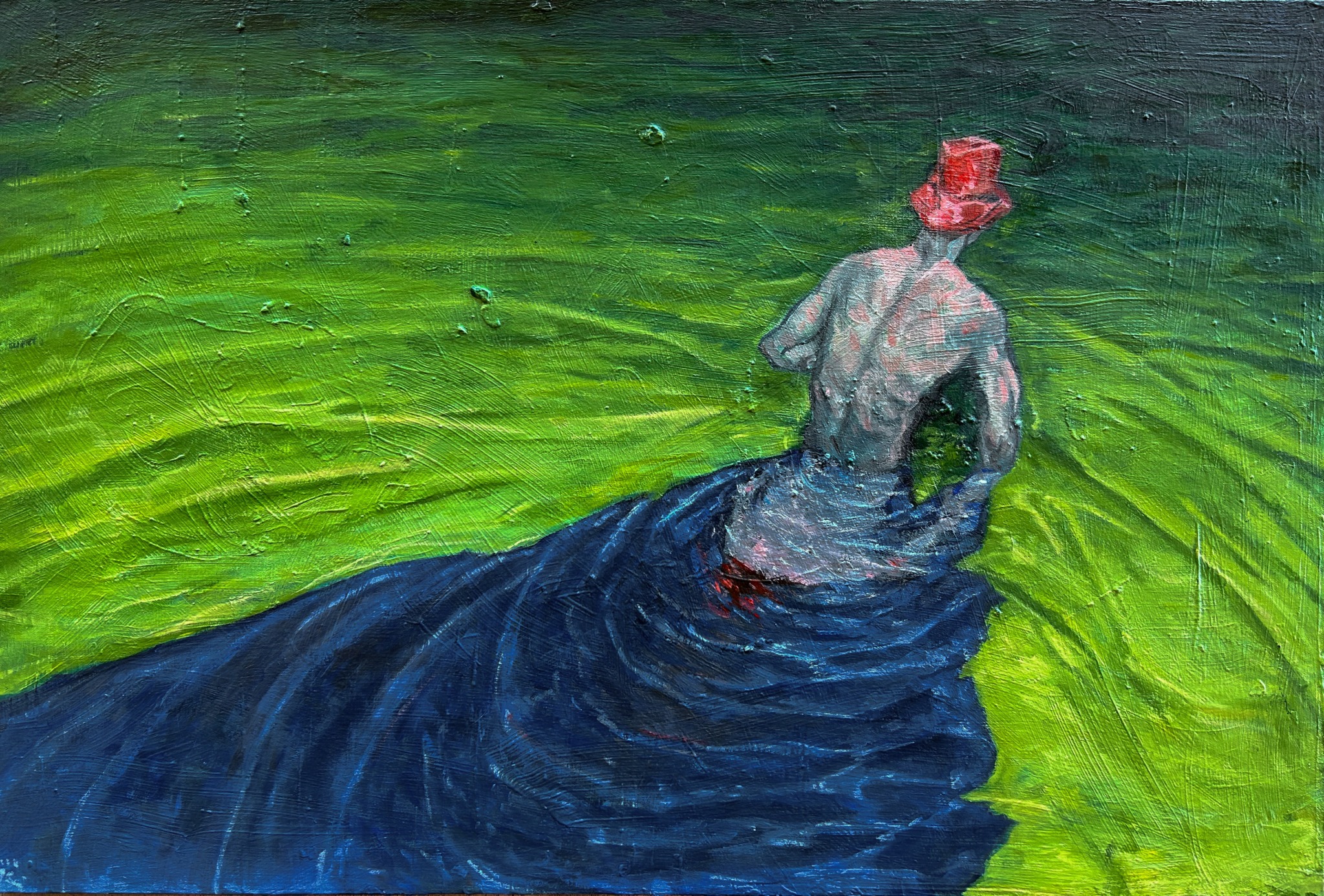
Awesome – so before we get into the rest of our questions, can you briefly introduce yourself to our readers.
I got started as an artist because it’s all I’ve ever wanted to do; I never cared about much else besides creating things. I’ve been obsessed with drawings and paintings since I was young. That being said, I have been working on training and figuring out my work for the last decade or so – I am currently on a hiatus as I have gotten drugged, and now I am trying to figure out what I want my art to say. I have worked full-time as a Creative Director for the last few years; I do not believe that your art has to be a full job anymore. I think it limits what you can create.
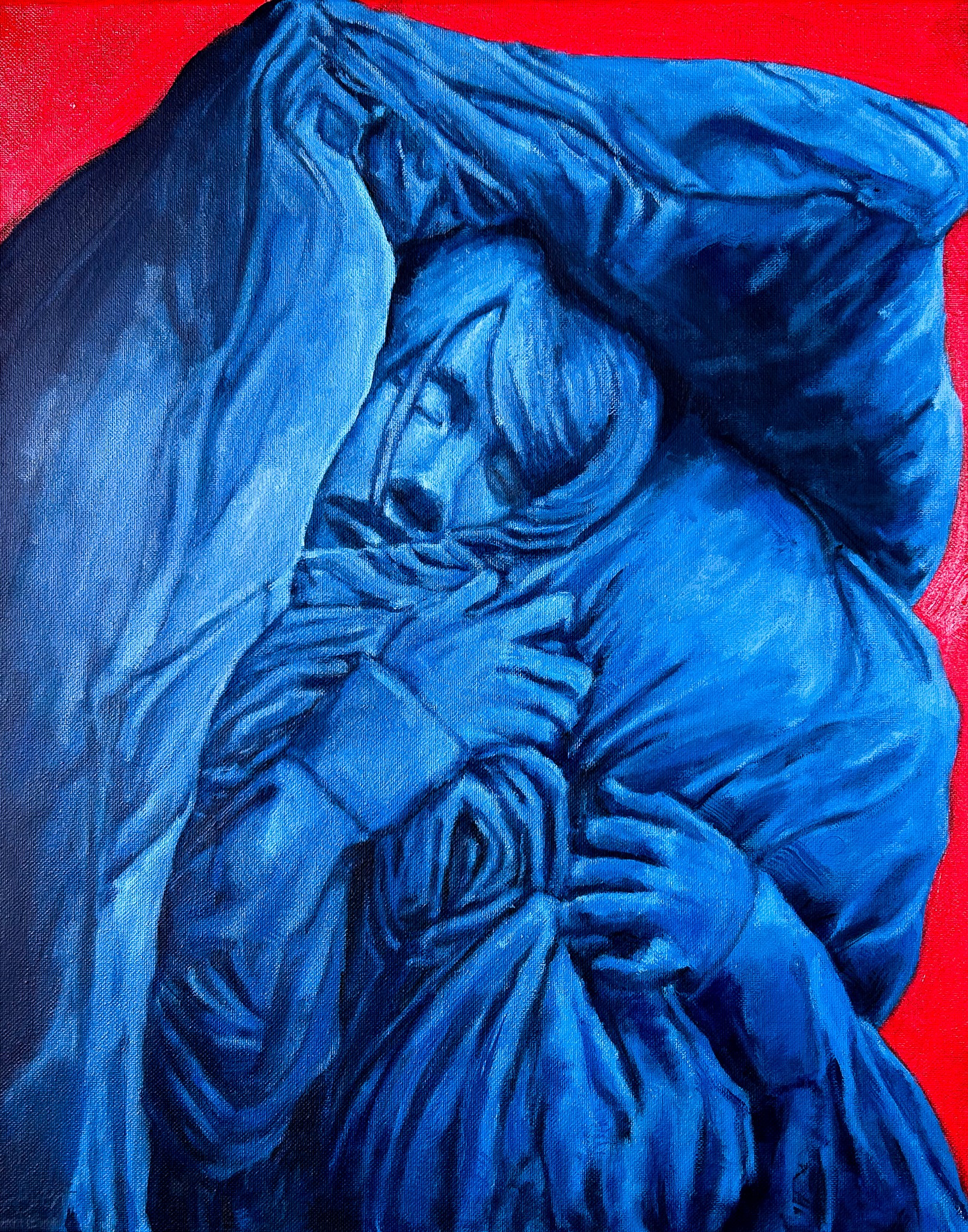
Alright – so here’s a fun one. What do you think about NFTs?
I hate NFTs; while the idea of having a collectible token for art collectors sounds nice, it quickly became an obvious grift. It reminds me of the beanie-baby craze from when I was young, collecting garbage just because you think it’ll be worth something. I would probably like them more if it wasn’t for the fact almost all NFTs are ugly as sin; anyone who spent money on a bored ape NFT should be placed in a conservatorship because you’re bad with your millions of expendable dollars.
“Oh, but Stevenit lets you own digital and non-tangible artwork; we didn’t have that before!! EXPLAIN THAT!” You can own non-traditionally made artwork by getting a certificate from the artist. It usually has instructions on how to maintain or make it, but that’s how museums get all of those strange modern pieces or digital pieces on their walls. So the concept isn’t even new – it’s just an excuse for tech dorks to try and shove more useless crap down our throats. Do I wish I had bought Bitcoin when it was half a penny? Yes, I do. DoI think the effects of bitcoin-rich nerds have been positive overall? No.
Again, 90% of the NFTs I’ve seen are just hideous, and not in a subversive “challenge the standard of beauty” way, but in the “Souless I just want to make a buck, I hired some poor illustrator to make a million, of these things.” NFTs are what made me lose faith in large tech companies and proved to me they’re cancerous scammers.
Rant over.
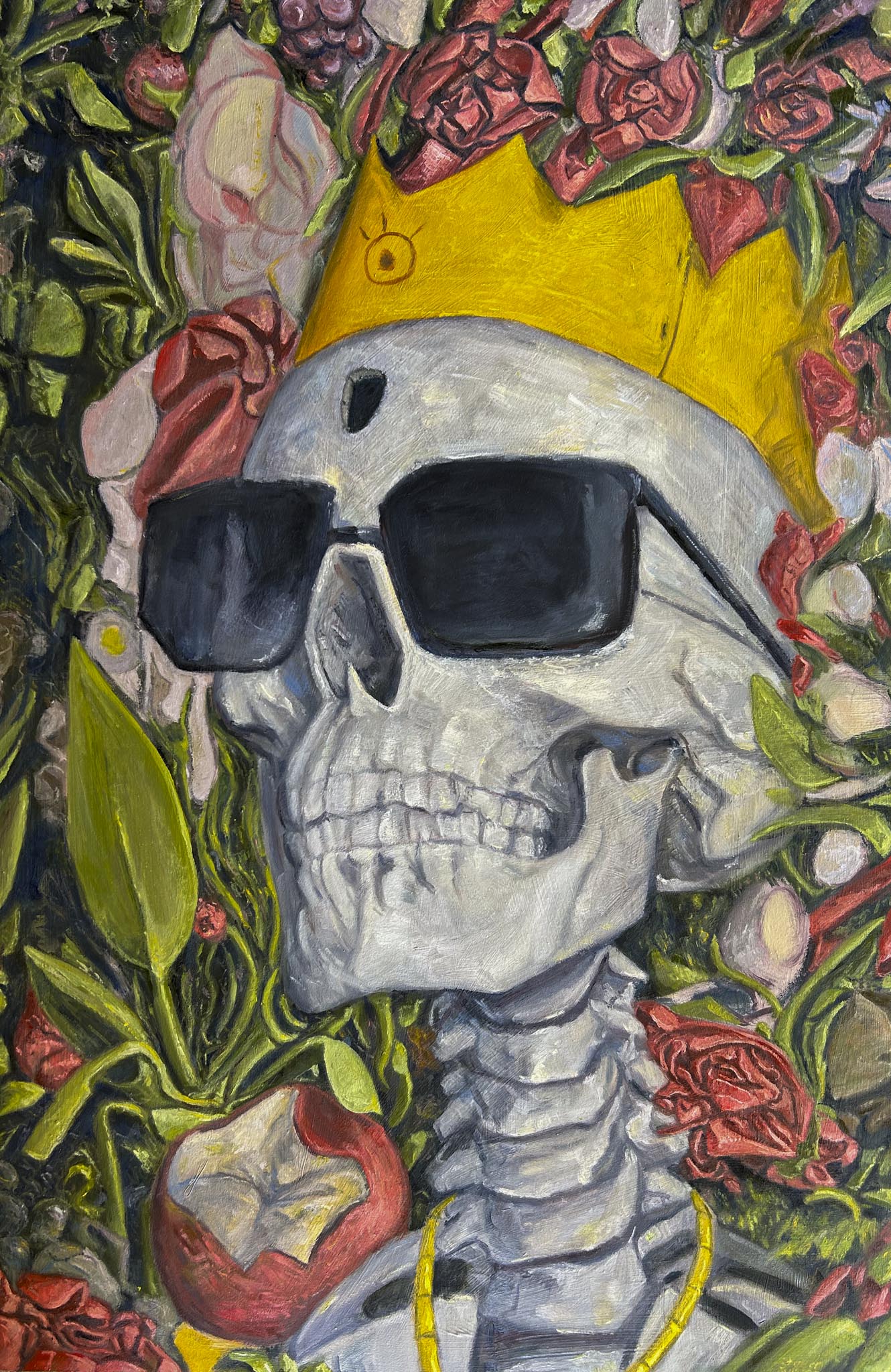
What can society do to ensure an environment that’s helpful to artists and creatives?
The best thing you can do to support artists and creatives is to understand that the point of great art isn’t to make money. This comes from an American 29-year-old’s perspective, but in almost everything I make, every show I do, I hear, “But did you think this would make money?” Making money is not at the forefront of creative expression for most good artists (personal opinion). Authentically expressing yourself will rub people the wrong way. It will confuse those who don’t relate. A personal experience I had was at my solo show last year; I did a series of paintings describing my journey dealing with depression and suicidal ideations (it was an upbeat event). An older man looked at one of my pieces depicting suicide and said, ” Why even make this? Who do you think would want this in their house??” I try to be understanding to people who don’t understand the basic concept of creation for creation’s sake, but I let him know that money is not the point of this show. It was to tell a story and connect with those who have had experiences similar to mine. I had a woman who had just converted to becoming a Jehovah’s Witness come in and cry because she related so much to the themes of despair. She told me she converted to try and battle off the darkness, and seeing my work made her feel less alone. That is the goal of art, in my opinion, and that message should be sent out throughout the community more.
So the TLDR is:
Look at art as a means of connection and storytelling instead of decoration and money-making. Don’t tell your kid to stop making stuff or not to make something just because it won’t make money.
All that being said by my artwork
Contact Info:
- Website: https://artonegalleryinc.com/artists
- Instagram: stevenallisons
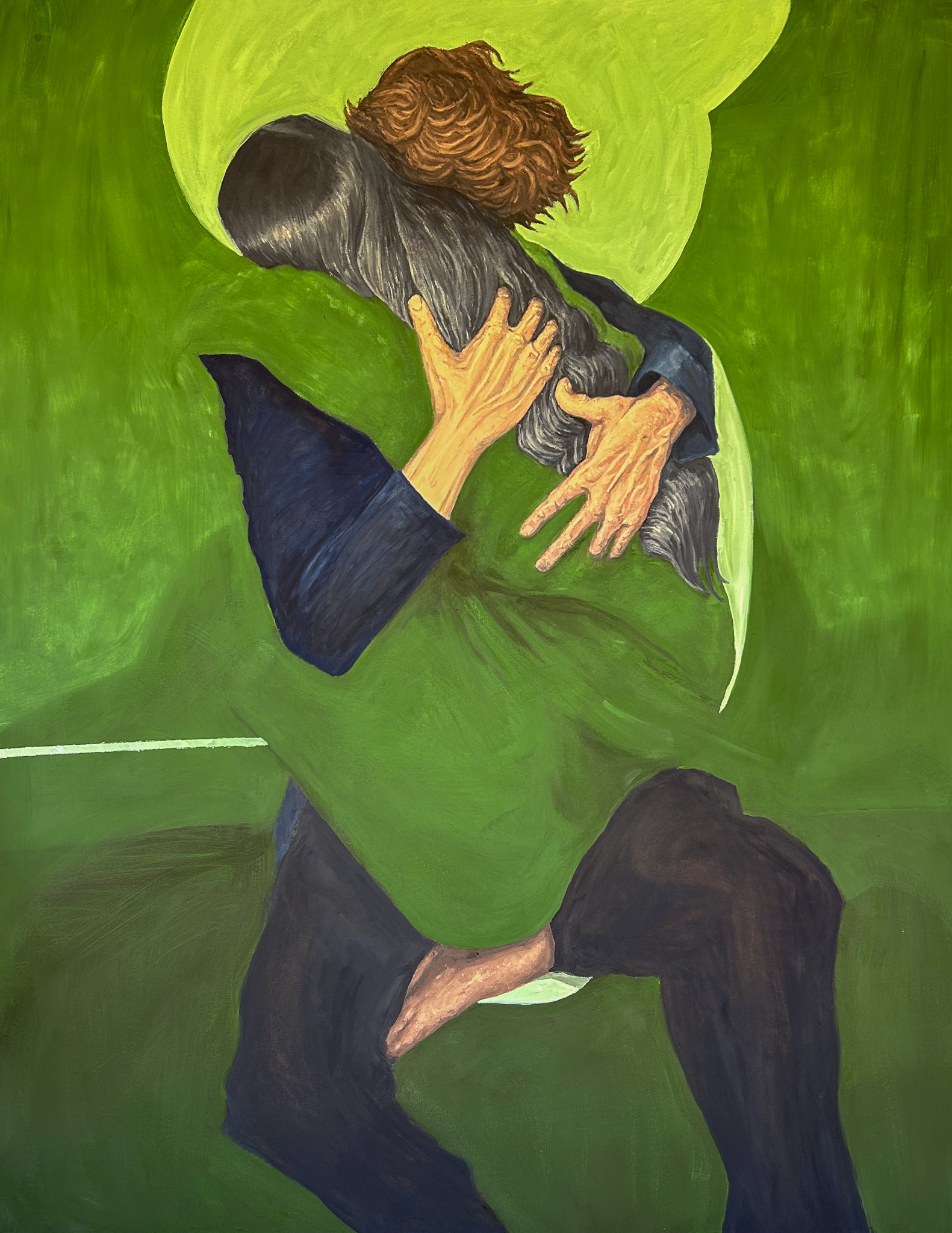
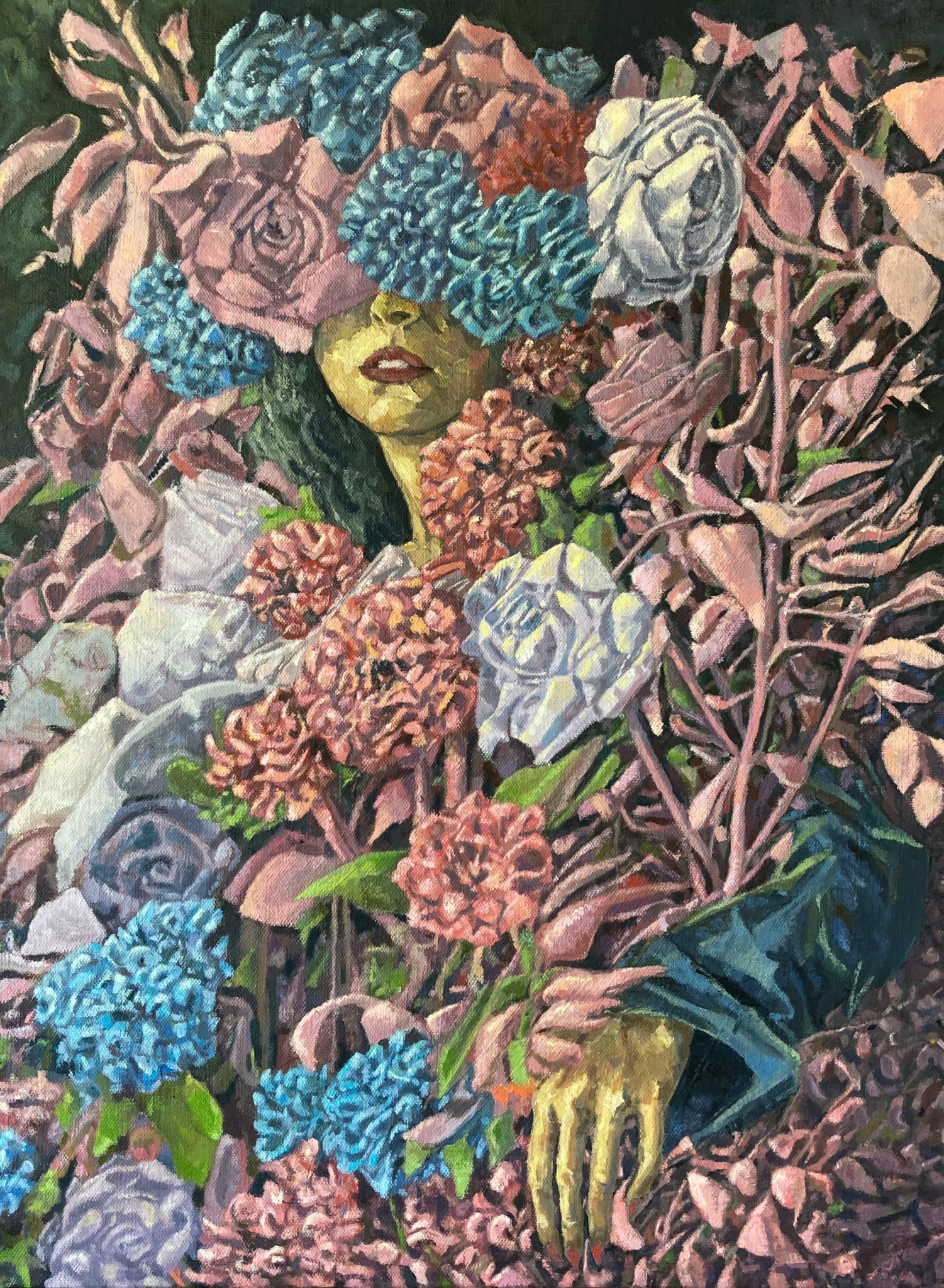
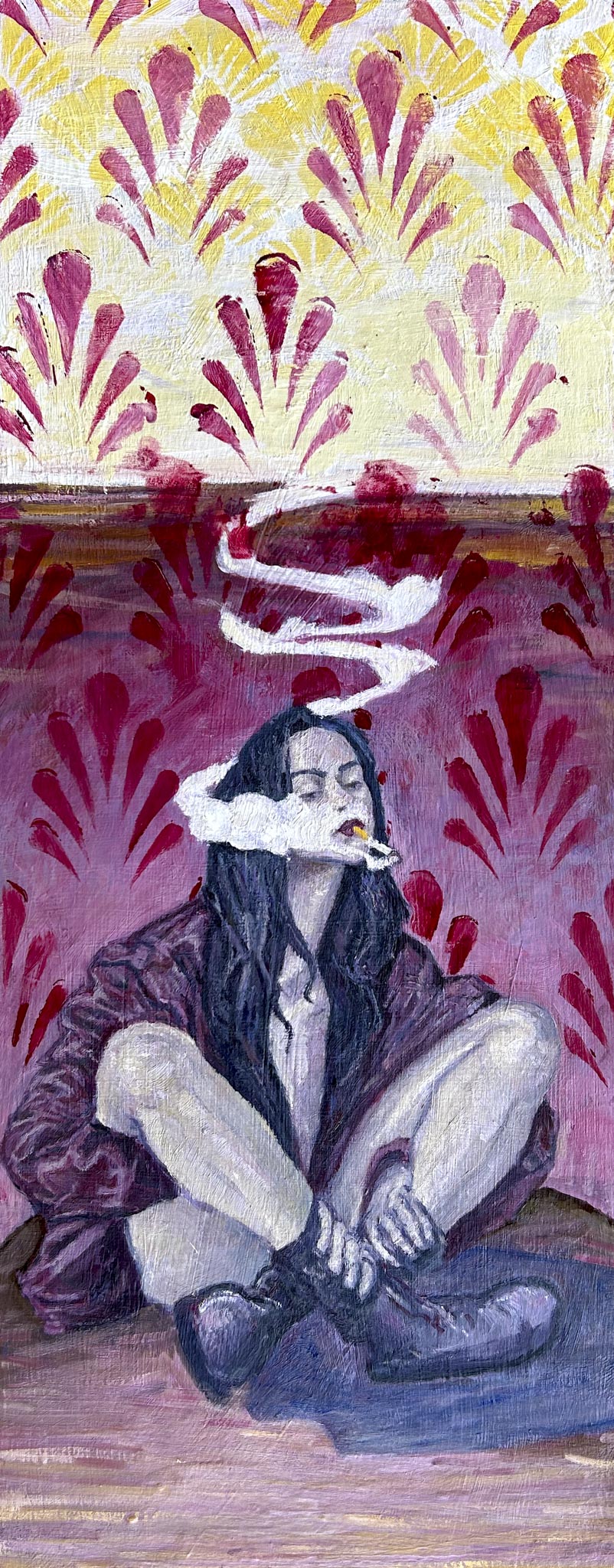
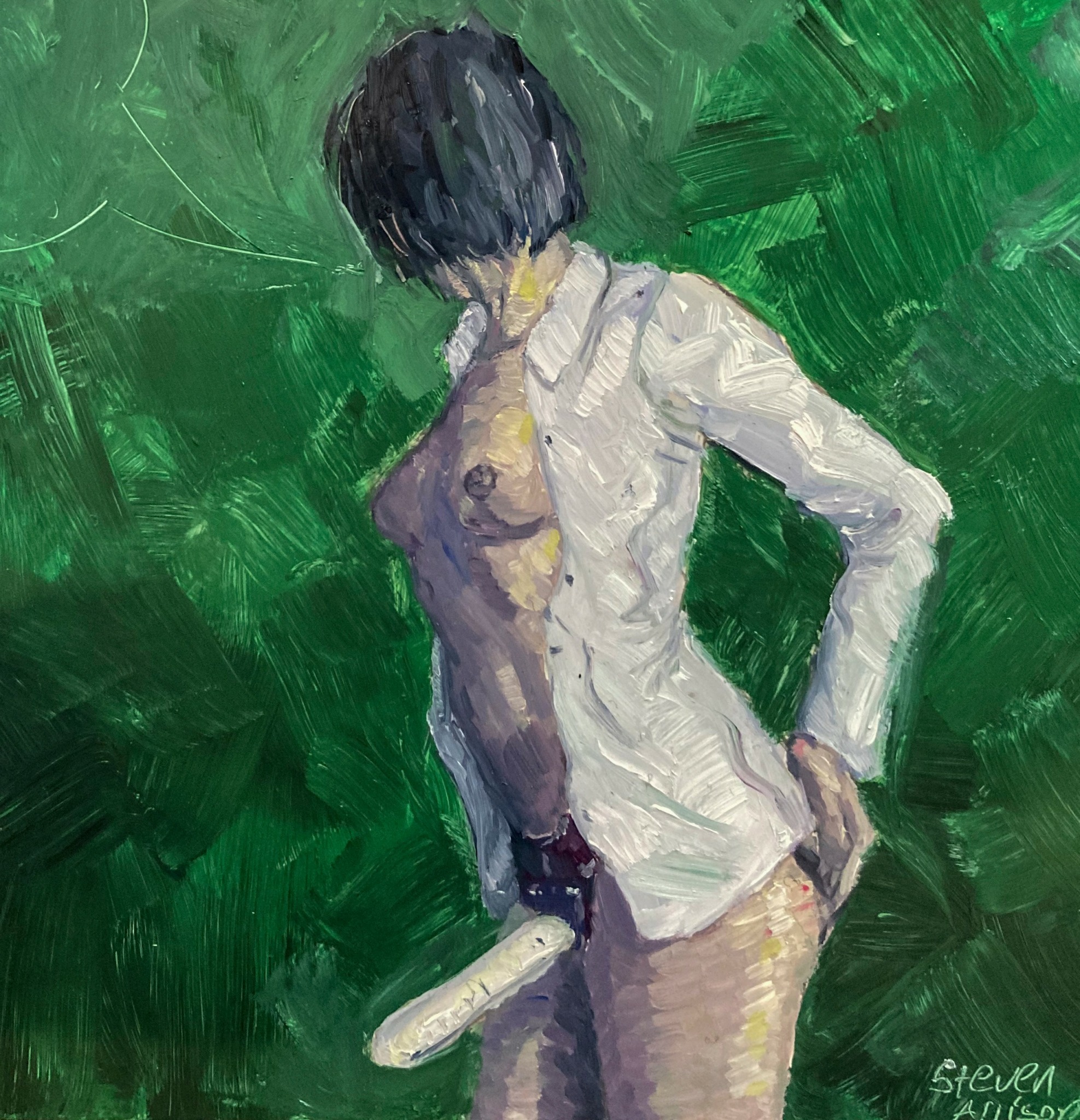
Image Credits
images by me


